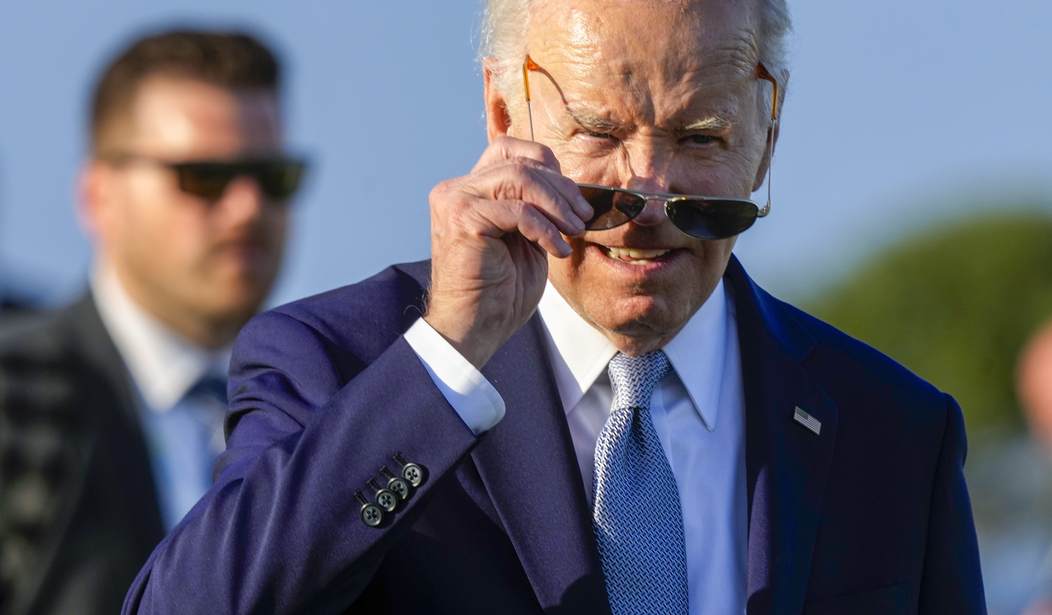Instagram, part of the Meta universe alongside Facebook and other social platforms, got caught making a significant change to the content served to users with some very convenient timing. The social media giant is now claiming "an error" was to blame — only after being called out. If it had gone unnoticed or the company didn't claim it was a glitch, it would have been a massive boon for President Joe Biden as he prepares to debate former President Donald Trump.
On Tuesday morning — just one day before what is expected to be a consequential debate between President Joe Biden and former President Donald Trump — Instagram reset all users' preferences to limit the amount of political content that gets served to them on the platform.
The two options for users are to "[l]imit political content from people you don't follow" or "[d]on't limit political content from people you don't follow." Even if a user (this writer included) had already told Instagram not to limit political content — which Instagram broadly defines as pictures and videos that are "likely to mention governments, elections, or social topics that affect a group of people and/or society at large" — the preference was reset to the default which is to limit such content.
If a user changed the setting back to allow political content and then quit the Instagram app, the setting would again default to have political content limited. There was no notice given to Instagram users that the change had happened.
The timing is convenient — it would have significantly limited the spread of video clips from Thursday night's presidential debate hosted by CNN between Trump and Biden, presumably showing Biden's diminished abilities — as is Instagram's excuse after getting called out for the change.
Recommended
"This was an error and should not have happened," a Meta spokesperson said Wednesday morning. The big tech giant pledged it was "working on getting it fixed."
Whether the mass reset of Instagram users' content preferences to limit the spread of political content the day before a presidential debate was "an error" or not is already a topic of debate. Townhall has reported numerous times how big tech companies work to suppress "wrongthink" and only relent when called out while claiming the suppression was merely an innocent mistake. In such cases, big tech companies such as Meta and Google treat any disfavored content as guilty until proven innocent — and that's if they ultimately relent under pressure.
In one notable example, Google flagged a Townhall column written by U.S. Senator Rand Paul as "unreliable and harmful." Our team appealed the flag and received a rejection. Once Townhall ran a story about Google's ruling that a sitting U.S. Senator quoting federal agencies, public health officials, and Columbia University professors to make a point was so unreliable as to be harmful, the company suddenly had a change of heart and claimed the flag and subsequently rejected appeal were just an "error."
Meta's supposedly "independent" fact-checkers operate in the same way, as Townhall has also experienced first-hand. Katie's column on one such run-in with big tech hall monitors who punish anything outside their preferred version of reality recounts how a straight news piece on the book "Unsettled" by Obama admin alum and physicist Steven Koonin earned Townhall a "partly false" rating.
Because Townhall didn't take a side on the issue or promote the left's narrative and simply reported Koonin's words, Facebook "slowed the reach of our post as a punishment for the rating, which suppressed and censored the story" in the Meta platform's algorithm, Katie explained. If someone did stumble upon our post, it was "accompanied by a 'partly false label'" and a link to the fact-checker's leftist narrative. Anyone who wanted to share Townhall's story was "prompted to reconsider" and review "additional reporting" on the topic before hitting "post."
Now, rather than piecemeal censorship in the past, Meta's latest Instagram change — intentional or by mistake — would have limited all political content for all users.
This dustup proves again how much power tech giants have over the information Americans are served or to which they have access. One slight change transformed the whole algorithm for every user to prevent them from seeing political content the day before what is arguably one of the biggest political events of the 2024 cycle so far.
Again, we're told it's just an "error" after users noticed the change that occurred without any notice from Instagram or Meta.
Remember COVID news? Hunter Biden's laptop? Big tech companies have already shown their willingness to brazenly censor inconvenient narratives even when their position is entirely incorrect. If people don't believe Instagram merely suffered a glitch and that's why it reset everyone's political content preferences, Meta only has itself to blame. Like the boy who cried "wolf!", its ability to say "oops!" is hardly a convincing argument.

























